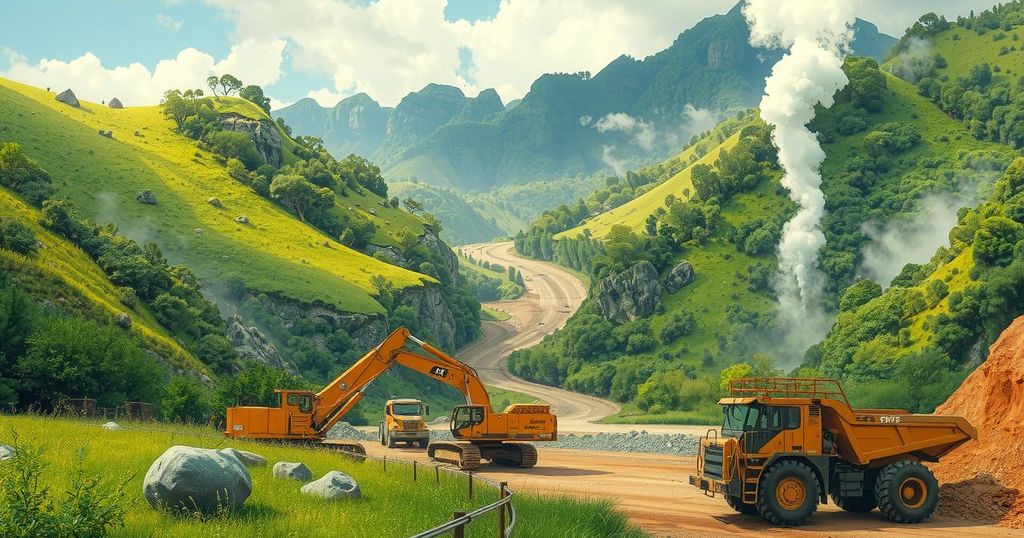Exploring a Proposed U.S.-DR Congo Mining Deal Amidst Regional Tensions

The Democratic Republic of the Congo is negotiating a potential minerals deal with the Trump administration to counter the M23 rebels. Preliminary discussions confirm interest in accessing the nation’s rich mineral reserves. Concerns about governance and transparency persist as local leaders question the economic benefits of such agreements, amidst shifting relationships with mining powers like China and the U.S.
The Democratic Republic of the Congo (DRC) is pursuing a minerals deal with the Trump administration to secure support against the M23 rebels and Rwandan forces. Preliminary discussions have been initiated regarding access to the DRC’s vast mineral resources, including significant reserves of cobalt, coltan, copper, and lithium that are essential for various technological sectors. The U.S. State Department has expressed interest in a potential mining partnership, although details remain unclear.
President Felix Tshisekedi first proposed this minerals deal during a February 22 interview with the New York Times, aiming to attract U.S. and European support for his country. Tshisekedi noted that the Trump administration had shown initial interest in acquiring strategic minerals directly from the DRC, asserting the country’s rightful ownership of these resources that have been looted by foreign entities. He anticipates that international pressure against Rwanda could be beneficial in securing stability.
A U.S. consultancy letter suggested a strategic partnership, including access to Congolese minerals and military support for local forces to protect mineral supply routes. However, experts like Jason K. Sterns caution that several aspects of the proposed plan may be unrealistic, especially concerning U.S. military involvement, which could contradict Trump’s earlier commitments to reduce foreign troop deployments.
Concerns over governance and transparency have emerged, with local NGO leaders stressing the necessity for public discussion in negotiations that could vastly impact the DRC’s economy. Government spokesman Patrick Muyaya Katembwe emphasized the DRC’s desire to diversify partnerships rather than merely trading minerals for security. Concerns about local benefit from such agreements were echoed by Jean Pierre Okenda, who called for parliamentary oversight.
The response from the Congolese government highlights a broader strategy aimed at diminishing reliance on China, which currently dominates DRC mining operations. Although Tshisekedi is seeking more Western investments, experts suggest the DRC’s historical ties and existing agreements with China make this a complex endeavor.
While U.S. interest in Congolese minerals remains, substantial operational challenges prevail. Many mining concessions are already assigned to private companies, limiting opportunities for large-scale agreements. Additionally, past ventures indicate a cautious U.S. approach, as prior American companies faced backlash over their dealings in the DRC.
Negotiations are actively ongoing with some success reported. Tshisekedi’s chief of staff recently met with U.S. officials, indicating a proactive governmental effort towards establishing favorable relations. Trump is reportedly considering appointing a special envoy to focus on the DRC’s mineral agreements, further emphasizing the importance of this strategic partnership for both nations.
The proposed U.S.-DR Congo mining deal highlights the interplay between mineral wealth, security concerns, and international diplomacy. While Congo’s government seeks to leverage its resources against threats from Rwanda and the M23 rebels, questions around governance, economic benefit, and transparency remain paramount. Furthermore, the dynamics of existing partnerships with China add complexity to the situation. The outcomes of ongoing negotiations may define future U.S.-DRC relations and impact the region’s stability.
Original Source: www.france24.com








